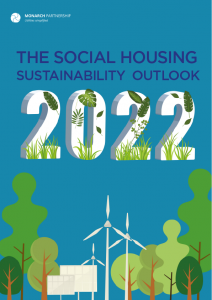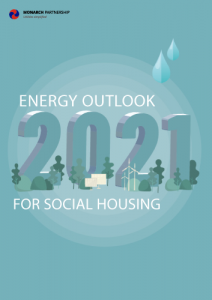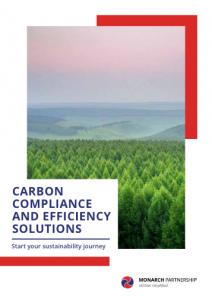ESG refers to environmental, social and governance factors which are becoming more and more important to private investors. This means that having an ESG strategy will become crucial for organisations looking to secure funding. We look at what this means for social housing, and how housing associations can benefit from the rising interest in ESG.
A new sustainability reporting standard
The social housing sector has often relied on a presumption that it ticks ESG boxes by having an innate social impact. But, until recently, there was no clear structure or standards for measuring or reporting ESG factors.
This inspired the ESG Social Housing Working Group to create a reporting standard for social housing. The recently released report, The Sustainability Reporting Standard for Social Housing, gives a consistent sector-wide approach for ESG reporting. The goal of this is to support and increase private sector investment for social housing.
Why social housing needs financial support
The UK is in the midst of a housing crisis. While the population, property prices and rental rates have seen rapid growth, wages have stagnated and fewer homes are being built. This has resulted in an inflated market that locks many out of homeownership and traps low income families in substandard living conditions.
The wealth gap continues to widen as some homeowners profit from rising property value, while a growing percentage struggle to afford a decent home. This has culminated in a recent spike in homelessness and rough sleeping in the UK, a problem that has not been helped by the Covid pandemic. It is clear that safe, comfortable, and affordable housing is more important now than ever.
However, while building new affordable housing will play a pivotal role in leading the UK out of its housing crisis, the current stock cannot be ignored. Much of the current social housing stock is in urgent need of refurbishment. Higher energy efficiency and low carbon heating methods would improve the health and welfare of tenants as well as reduce the building’s carbon footprint.
In this way, social and affordable housing can help lead the UK’s recovery from the pandemic and promote sustainable business practices. But housing associations will need to adopt a proactive ESG strategy to secure the funding they need to achieve this.
What is the ESG reporting approach for housing associations?
The Housing Group’s report proposes 12 themes and 48 criteria for ESG reporting by housing associations. The criteria have been mapped to global approaches and reporting standards such as Sustainable Development Goals (SDGs) and Task-Force on Climate Related Financial Disclosures (TCFD).
The 12 core themes are:
1. Affordability and security (Social)
- The extent to which long-term homes are genuinely affordable and provided to those on low incomes
2. Building safety and quality (Social)
- How effective the housing provider is at meeting its legal responsibilities to protect residents and keep buildings safe.
3. Resident voice (Social)
- How effective the housing provider is at listening to and empowering residents.
4. Resident support (Social)
- The effectiveness of the initiatives that the housing provider runs to support individual residents.
5. Placemaking (Social)
- How housing providers create well-designed homes and communal areas that meet local needs and provide great places for people to live and enjoy.
6. Climate change (Environmental)
- The impact of the housing providers activities on climate change, and how they mitigate the physical risks of climate change.
7. Ecology (Environmental)
- How the housing provider is protecting the local environment and ecology.
8. Resource management (Environmental)
- The extent to which the housing provider has a sustainable approach to materials in both the construction and management of properties.
9. Structure and governance (Governance)
- The housing provider’s overall structure and approach to Governance.
10. Board and trustees (Governance)
- The quality, suitability and performance of the board and trustees.
11. Staff wellbeing (Governance)
- How staff are supported and how their wellbeing is considered.
12. Supply chain management (Governance)
- If the housing provider procures responsibly.
It is clear from these core requirements that complete transparency and genuine sustainability will become paramount to the future growth of any organisation. Especially housing associations, which are intrinsically tied to ESG due to their responsibilities within a community.
This makes social and affordable housing an attractive opportunity for investors. And this interest will only grow as more investors, including largescale asset owners such as pension funds, look to optimise the social and environmental impacts of their investments.
Next week we will be discussing TCFDs, their relevance to ESG reporting, and how it could impact housing associations. Stay tuned to learn more.
How can Monarch help?
At Monarch, we recognise the unique challenges Housing Associations face in keeping costs and carbon emissions low. That’s why we recommend outsourcing your energy admin to a specialist. We provide holistic energy management that helps take the stress out of environmental reporting.
Our goal is to future-proof your organisation by helping you stay ahead of the curve. In our ‘2021 energy outlook for social housing’ report, we look at upcoming trends in social housing. And how Monarch can help housing associations benefit from them.
If you are interested in preparing your business for a more progressive future, contact us at Monarch today.
















